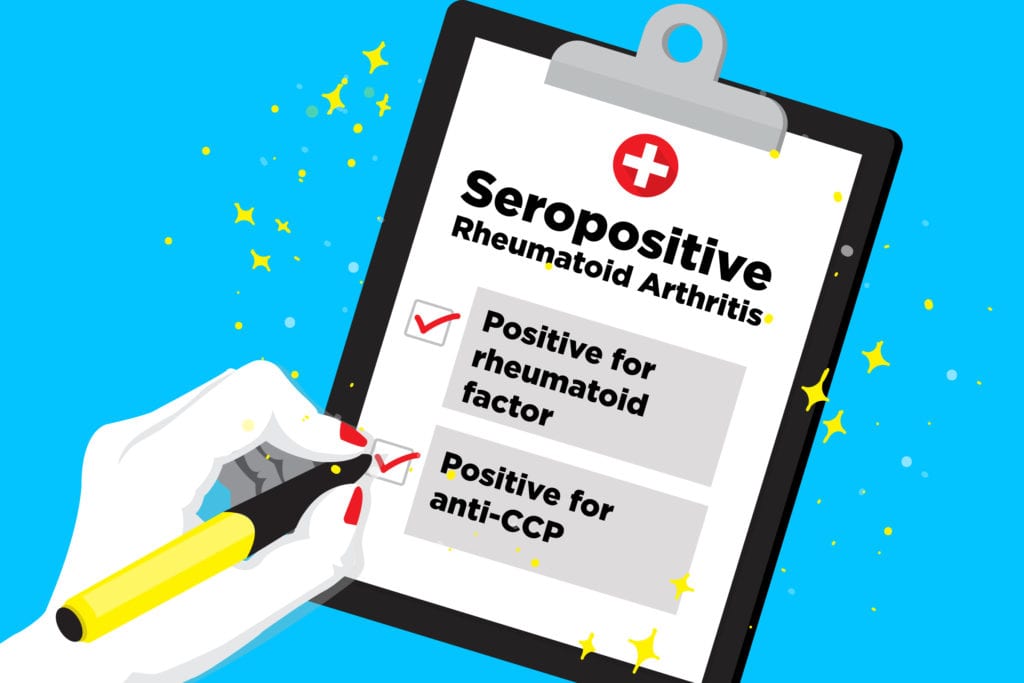

People with rheumatoid arthritis (RA) who are seropositive — which means they have a positive blood test for autoantibodies such as rheumatoid factor autoantibodies or anti-CCP — may have more severe symptoms and joint deformities compared to RA patients who are not seropositive. But do changes in their autoantibody levels actually say anything about disease activity and how well their treatment is working? According to a new study, the answer appears to be no.
The study, published in the journal Arthritis Research & Therapy, followed 381 seropositive RA patients who were monitored at four-month intervals during their first year of treatment. Treatment was adjusted every four months in an effort to get each patient’s DAS (disease activity score) below 1.6.
Researchers measured levels of 14 different autoantibodies and kept tabs on patients’ levels as treatment was ramped up or tampered as necessary.
“For all 14 autoantibodies, levels decreased from 0 to 4 months and then rose until 12 months,” the authors found. They concluded: “Changes in RA-autoantibody levels are not associated with DAS or long-term treatment response, but reflect intensity of immunosuppression. This suggests that autoantibody levels are modifiable by current therapies, but that modifying levels is in itself of limited clinical relevance.”
The takeaway for patients is that focusing on improving your level of autoantibodies isn’t terribly worthwhile, so it’s probably not important for your doctor to monitor them regularly.
Instead, continue paying closest attention to your personal perception pain, swelling, stiffness, fatigue and mobility. (You can keep track of symptoms by using our ArthritisPower app.) That information, coupled with a doctor’s assessment of your joints and lab tests that measure inflammatory markers (like C-reactive protein), is the best way for your doctor to determine if you’re in remission or if your treatment regimen needs to be adjusted to help get you achieve lower disease activity.





